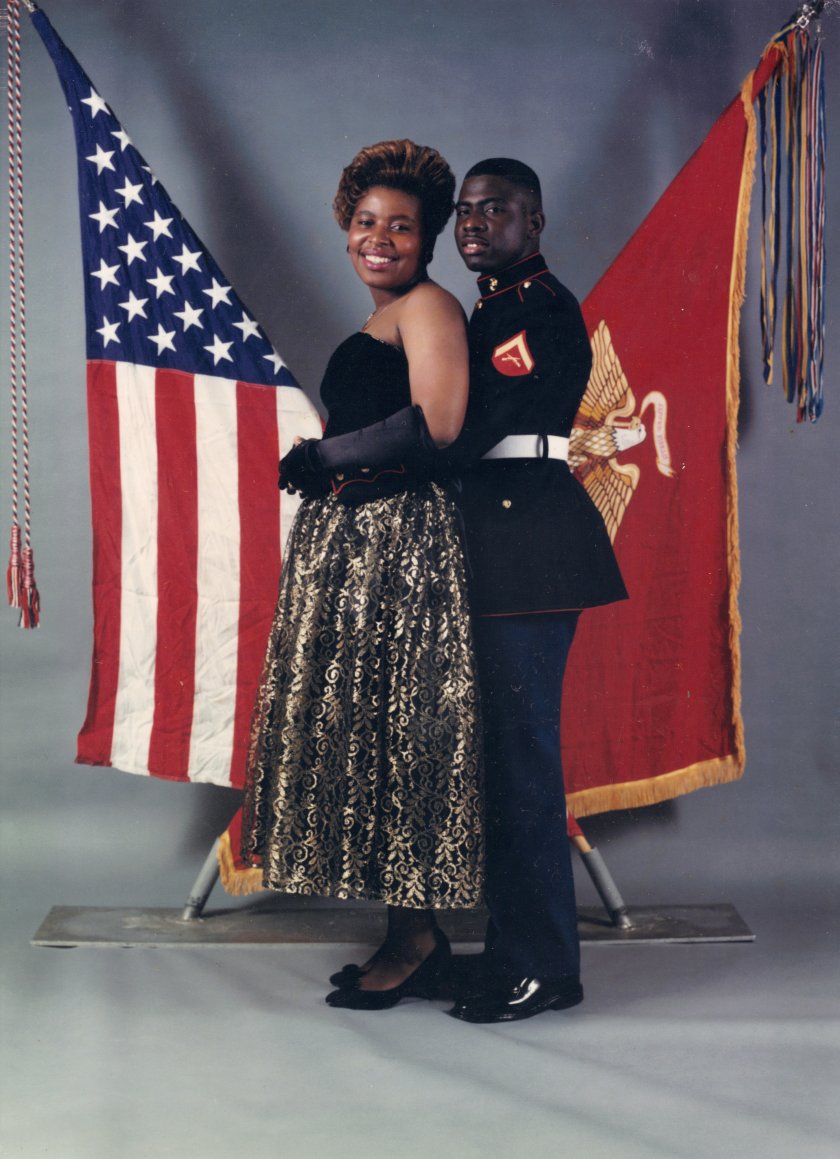
Ginger Miller, 44, was a Boatswain’s Mate Third Class during the First Gulf War. She’s now founder and CEO of Women Veterans Interactive, which provides resources to homeless female veterans and female veterans in need of support.
When I was stationed in Camp Lejeune, North Carolina during the first Desert Storm, a 50-foot yacht crashed into us and swept us underwater. My knees were injured, my back was injured—I remember feeling like I wanted to die. Shortly thereafter, I was medical discharged.

[time-brightcove not-tgx=”true”]
That was serious business for my husband and me. I only had a high school diploma. I had planned to stay in the Navy for 20 years, and my husband was going to travel with me. I was also pregnant with my first son. After my family told us we had to leave their home in the New York—my husband had left the Marine Corps with untreated PTSD, so his mood swings were pretty bad—we were homeless.
At that point, lots of girls might dream of a knight in shining armor to save them. But my knight in shining armor was damaged, so I had to step up take his place.
I started working three part-time jobs, going to college at Hofstra through a stipend from the GI bill. We lived in a car, and as soon as I’d get a little piece of money in, we’d get into a hotel. One night, we stayed at a rest stop where all the truck drivers go. I was so scared, because I didn’t know who was in the trucks. My son didn’t deserve to be sleeping in that car. I just remember looking him and thinking, Okay, this is going to be the last time we will ever have to do this.
It’s hard for me to even think back on that time now. A couple months after that night, my husband got a job working in a hospital laundry department, and we were able to save enough money to start renting a two-bedroom house. I finished my bachelor’s degree in accounting, and I started a job doing income taxes from home. Eventually, we moved to Maryland, because it’s where my husband and I met and married. I started working as a loan officer for JP Morgan Chase. We were finally stable.
During that year of homelessness, I always thought, Okay, today, I’m not going to worry about what’s going to happen to me after I get my degree. I need a roof over my head for tonight. Then I’ll deal with tomorrow when it comes. I felt ashamed, embarrassed, confused. How could I go from serving my country to struggling?
I wish I had known back then that the VA had programs for homeless veterans. I could have been eligible for a HUD voucher to move into my own apartment. That’s why I go all around the country telling my story to female veterans who don’t have a strong support system. I don’t want them to suffer because they don’t know.
Since the inception of Women Veterans Interactive, we have supported over 1,000 women veterans and women in the military and are on track to help 1,000 more through a commitment made at the Clinton Global Initiative. I’m still recovering, but the more I help others, the more I’m helping myself. Because I see myself in the other women, and I know I’m not alone.
—as told to Olivia B. Waxman